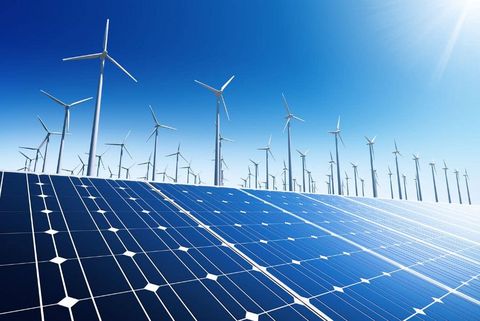Clean energy and EV adoption beating expectations – IEA

The adoption of clean energy and electric mobility is beating expectations according to the latest report from the International Energy Agency (IEA).
The updated Net Zero Roadmap from the agency said alternatives to combustion engine vehicles such as electric vehicles (EVs) and clean energy sources such as solar power are establishing themselves as mass markets during the 2020s.
Under the IEA’s Net Zero Energy by 2050 (NZE) scenario, 13% of vehicle sales were hybrid, battery or fuel cell electric vehicles in 2022, rising to 70% by 2030, 98% by 2035 and 100% by 2050.
Solar PV capacity additions had increased by nearly 50% in two years, the report said, which is ahead of the trajectory envisaged of the IEA’s 2021 report.
Electric car sales expanded 240% and stationary battery installations by 200% since 2020, the report added.
In a research update, Norbert Rücker, head of economics and next generation research at wealth manager Julius Baer, said: “Overall, the transition has accelerated substantially worldwide due, among other factors, to the growth of the solutions offered, the scaling of supply, and the strong demand for alternatives triggered by the fossil-fuel-induced energy shocks.”
Rücker said the most noteworthy acceleration is in clean energy, where solar has become a global mass market, and where battery grid storage show some of the greatest growth dynamics.
The business has low entry barriers and fierce competition, he said, given massive investments in manufacturing in China, with capacities almost at or with the potential to exceed levels needed to contribute to net zero targets, estimated at around 800-1000 gigawatts per year.
For electric mobility, the dynamics have picked up and current trends exceed earlier estimates, he said, however, supply chains scale in time and the potential bottlenecks in battery supplies remain a key challenge but are less pressing than previously thought, he said.
“The energy transition is in full swing, and it is driven by market dynamics rather than politics. Roadblocks are not economics or costs but rather institutions and rigid old energy world market structures,” he said.
“We stick to the view that the energy transition is shaping up as a deflationary and productivity-boosting structural trend dominating the coming decade up to 2035 and beyond.
“Yet the nearer-term outlook is one of consolidation and cooling past the boom, which is the key element to be aware of for investors.”
EVs in the MENAT
Data published by Redseer Strategy Consultants on EV adoption in the MENAT region showed that Turkey was leading the way when it came to electric or combustion engine vehicle alternatives.
Of Turkish car buyers surveyed earlier this year, 40% said they had opted for an EV when they bought a new vehicle, compared with 20% in the UAE and 15% in Saudi Arabia.
Redseer said with the right policy and infrastructure support, electric vehicle adoption could reach 12% of the MENAT region’s new car sales by 2027.


